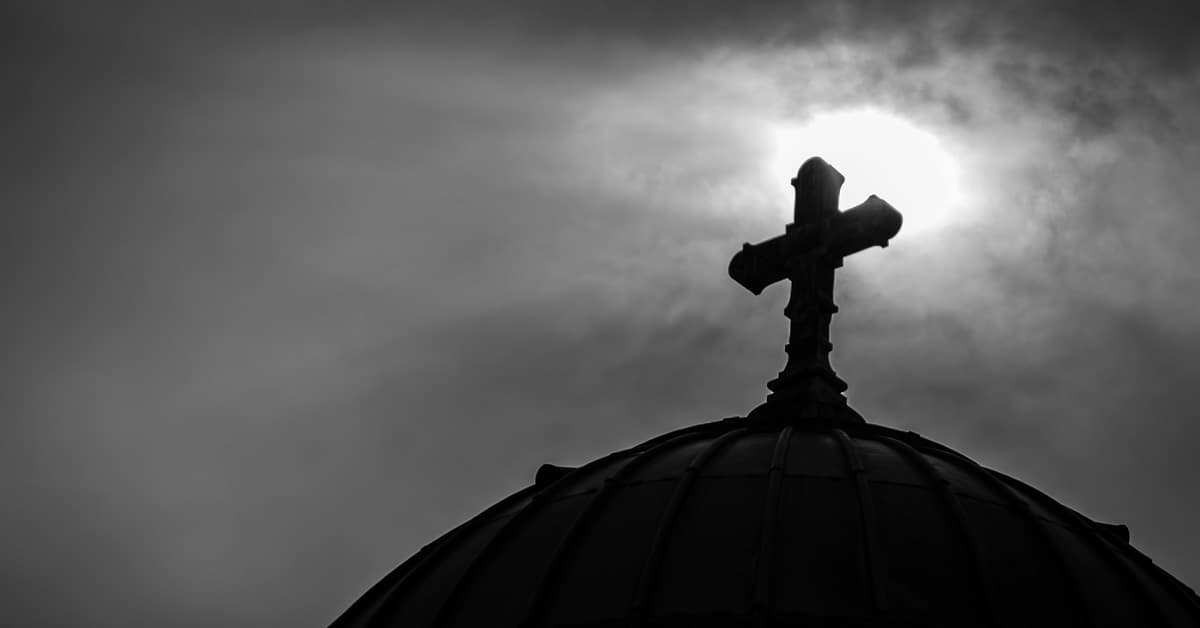Anyone who has not gone on journeys of powerlessness will invariably abuse power.
A good friend sent me a recent devotional from Richard Rohr, thinking I would love it! I did! In fact I share it with Brad on tomorrow’s podcast at The God Journey, but I wanted to highlight some of it here and give you a chance to read it before. I love the whole thing and how most ancient initiation rites led men into feelings of powerlessness so that he would not abuse that power, especially in male-dominated societies.
He goes on (emphases mine):
Jesus clearly taught the twelve disciples about surrender, the necessity of suffering, humility, servant leadership, and nonviolence. They resisted him every time, and so he finally had to make the journey himself and tell them, “Follow me!” But Christians have preferred to hear something Jesus never said: “Worship me.” Worship of Jesus is rather harmless and risk-free; following Jesus changes everything.
… I have often thought that this “non-preaching” of the Gospel was like a secret social contract between clergy and laity, as we shake hands across the sanctuary. We agree not to tell you anything that would make you uncomfortable, and you will keep coming to our services. It is a nice deal, because once the Gospel is preached, I doubt if the churches would be filled. Rather, we might be out on the streets living the message. The discernment and the call to a life of service, to a life that gives itself away instead of simply protecting and procuring for itself in the name of Jesus, is what church should be about. Right now, so much church is the clergy teaching the people how to be co-dependent with them. It becomes job security instead of true spiritual empowerment. Remember, anyone—male or female—who has not gone on journeys of powerlessness will invariably abuse power.
You can read the whole thing here. Maybe you’ll love it too. It may be more difficult for women to read, especially those that have been harmed by the abuse of power in our male-entrenched cultures, but the message is so powerful for all of us.
Jesus’ Invitation: Follow Me
By Richard Rohr • Tuesday, October 18, 2016






When we first came to the church we were recently forced to resign, someone told me how grateful they were to have a pastor who would preach the Word to them. She’s a nice woman. Her dad is a retired pastor. I told her then that I wondered if she’d tell me that in five years. I had seen it before. A church will take just so much undiluted preaching. I’m not talking about shouting and hellfire and brimstone. Simply speaking the Word as it is – unfolding the truth a step at a time. At some point, the church will revolt if they don’t really hear. Grace becomes judgment for those who turn a deaf ear. Any excuse will do.
I am new to your blog and so I was excited to see you quoting Richard Rohr – we have been tuning in to him (and to others) for the past few years. It is great when similar messages come from diverse sources – seems to confirm one is on the same road. Thank you for your teaching.
In my experience, the majority of women ARE on journeys of powerlessness at least part of their lives. Another word for this is “being victims.” As women, we need to be empowered to be ourselves and take control of our own lives, not encouraged to be further victimized by the male power structure.
Right you are, Hanna. He certainly was not justifying women’s victimization and neither would I. I think we’re both suggesting a difference between powerlessness as a choice of love, rather than a conscription of culture. That’s why I thought it would be hard for women to read. They have all been victimized by the misuse of power and erroneously left out of it by male-dominate cultures. They absolutely have been victims and we need to do all that we can to make sure it stops.
Thanks again for introducing me to another of the facets involved in describing how God grows our relationship with Him and with those sharing our journey. I have just been amusing my self with the thoughts of how I might describe my credentials on “Powerlessness”. I do have experience in “Tolerance”, but it’s purpose was certainly not a choice of love but of expediency or self preservation.
The distinction between following Jesus or worshiping Jesus is also a revelation for me that helps me put words to the uncomfortable feeling I have when observing the practice of the latter.
As usual, I continue to be refreshed by fishing in your Stream.
Just thought this might help folks to realise what the Bible means by powerlessness. This is something I wrote some years ago and it nicely chimes with what Wayne has to say about interpreting Paul these days. Enjoy.
“The final reference Paul makes to weakness is in 2 Cor 13:4-5 “…Christ is speaking through me…For to be sure, he was crucified in weakness, yet he lives by God’s power. Likewise, we are weak in him, yet by God’s power we will live with him in our dealing with you.”
This idea of weakness has unfortunately been commandeered by the me-generation and used when they’re in financial, health or relationship problems but have you ever heard of weakness as a deliberate evangelistic strategy? In order to identify with the weak we are encouraged to become like them. But many of us find that difficult. How can we identify with someone who lives in voluntary squalor, who has spent half the night engaged in internet sex, neglects their children, drinks far too much and spends their last $20 on lottery scratchcards? That is the reality of life for thousands the Lord came to save. It is easy to play the Benefactor to the poor, if indeed we do it at all. But you cannot serve from a position of strength. That is what Paul is telling us. We must actually become weak (not just feel it in our own troubles) and therein lies the problem because most of us aren’t and neither are we encouraged to think this way.
The Lord told him that his Divine strength (power) was brought to perfection in human weakness. Some today look for a church that is numerous, wealthy and influential, but where we can do much, the glory will not go to God. Someone once said to me only half in jest, “I know God comes through in the end, but why does he always leave it to the last minute?” Because therein lies His glory.
Consequently, Paul wants to boast even more about his weaknesses that the power of Christ will rest or tabernacle on him, just as the Shekinah glory did in the wilderness. And Paul reminds us that he is following his Master who was crucified once through an assumed weakness in accordance with the will of God, even though he could have swatted His enemies like flies, so that His continual life can be manifest in us through God’s power. And Christ’s apostle is a parallel case for the Corinthians to imitate.
The world despises weakness. Strong and successful people are feted. And we can get caught up in that kind of thinking. But Paul cared nothing for the world’s reputation, for career or position.
Do we feel weak? Then we’re in the best position to serve the unsaved and to see the power of the Servant King. We shall then know the reality of His glory spreading over us like a tent. This is the meaning of living by faith and not by sight.”